There’s a new wellness glow surrounding CBD products – yes, we’re talking about drinks. Experts are predicting its shiny future, companies are investing big time, and consumers have many questions.
What is a CBD drink?
As the name suggests, CBD drinks are beverages that have the popular cannabis compound cannabidiol (CBD) in them, and that allow consumers to experience the benefits of CBD on the go.
My favorite definition, however, is the one that emphasizes its user-friendliness and foresees its massive consumption – “hemp gone mainstream.” Experts predict that the CBD beverage industry alone will be worth $11.38 million by 2025.
What makes a CBD drink so special is the fact that it can be made from virtually anything that you can drink – water, soda, coffee, tea, etc. There is probably another type of CBD beverage being invented as we speak.
Even though it seems simple enough, there’s a complex chemistry behind this product.
Water soluble CBD
CBD is a hydrophobic compound, which means it doesn’t naturally dissolve in water. It’s usually found in the form of oil and needs to be subjected to a conversion process so it can be water-soluble.
So, how are CBD drinks made?
The simple answer is by using water soluble CBD. The more complicated way to do so is by implementing nanotechnology and breaking down the big CBD molecules into bits of nano-particles that can easily be absorbed in the body.
Considering we are up to 60% composed of water, this absolutely makes sense.
In scientific terms, by increasing CBD’s solubility, you are also improving its bioavailability (proportion entering the circulation) and causing a lot less of it to go to waste. In plain English, water soluble CBD could be a real game-changer when it comes to the administration methods for this substance.
Let us explain.
When you ingest a substance like CBD, its concentration significantly reduces before it has a chance to make it to your bloodstream. This is known as a first-pass effect/metabolism and it’s only applicable for oral consumption.
In other words, you will be using only a small part of the substance taken.
But when you process CBD molecules to make them water soluble before consumption, your body can absorb more of them as they are. There’s no decrease in concentration, bioavailability, and effectiveness.
Struggling to dose CBD? We made an app that calculates your perfect dosage based on research studies. Find out more here.
Can you have one too many CBD drinks?
Technically, you can. But you would have to consume 1500 mg of CBD in a short amount of time.
Given that an average 16 oz bottle of a CBD drink contains some 10-20 mg of the substance, it’s virtually impossible to overdose – except maybe if you drink 100 of them in a few hours. Like with everything else, staying away from extremes is a good idea.
Once you’ve found your ideal therapeutic dosage, stick to it.
Can you mix CBD with alcohol?
Everyone who has ever had “an episode” while mixing THC and alcohol knows this is not a good idea.
But, what about CBD? How does it work with alcohol?
Unfortunately, most of the studies that deal with this issue are outdated, and there is currently not enough scientific evidence for making any claims.
What’s more, since each individual could have different reactions to both CBD and alcohol, there’s no way of predicting the exact effect in a particular case.
It seems alcohol and CBD could amplify each other’s effects, causing sedation and sleepiness.
Despite that, if you decide to do it anyway, it’s probably wise to take moderate amounts.
Can it make you fail a drug test?
Regular drug tests do not detect and cannot trace the levels of cannabidiol in your body. CBD would need to be added to the list of chemicals that a person is screened for, which could be costly.
As drug tests are detecting the levels of THC and its metabolites, it’s highly unlikely to test positive solely by consuming CBD.
However, people have reported that they did.
This is because CBD products can contain trace amounts of THC, which could then potentially accumulate in your fat cells over time.
For example, a year of consuming trace amounts of THC (<0.3 mg) could yield a result that’s above the typical detection threshold of 50 ng/ml.
It doesn’t help that the industry is largely self-regulated, and not everyone is using third-party testing for their products. It means that in some cases products that are marketed as purely CBD products could have even higher levels of THC.
A couple of sound conclusions could be drawn from these facts.
Always check what’s inside your drink (even if the labels will not fully disclose information), and shop only from reputable brands that use third-party testing.
To be completely sure, avoid CBD products if you know you’re going to be tested.
Are CBD drinks legal?
The legal framework surrounding CBD beverages is currently a messy-looking piece of patchwork.
In essence, there is a huge collision between federal law, the FDA approval process, and the booming industry.
Ever since Donald Trump signed the 2018 Farm Bill, the growing of hemp (the plant from which CBD is extracted) became legal on a federal level. However, the FDA’s regulations are somewhat lagging behind – so far, it has only approved Epidiolex – a CBD based drug used for treating severe forms of epilepsy.
Keeping in mind that the FDA has issued several statements, press releases, and consumer updates, it seems that it’s quite aware of the problem, but holds a “laissez-faire” position on the matter. Beside sending warning letters to manufacturers that made false health claims about their products, the FDA has not taken any legal actions.
In the meantime, you can find CBD beverages literally everywhere, especially in states such as California that are not waiting for FDA’s approval to start with the sale of CBD-infused beverages.
Where does all that leave us, the end consumers? Are we doing anything illegal?
Well, yes and no.
The truth is that no one would probably come knocking at your door for buying a CBD drink or two, but if you are planning a massive production line with an ambition to export across the state, you should probably consult your lawyer.
Can CBD drinks have side effects?
Since CBD products didn’t go through the FDA’s approval process, there is no official RDI (Recommended Daily Intake), nor warning on potential side effects.
However, while performing clinical trials to test the effects of Epidiolex, the researchers reported side effects that were “manageable”: diarrhea, sleepiness, poor appetite, and vomiting.
At worst, this is probably what could happen if you take one too many CBD drinks.
Customer considerations
While we wait for more official guidelines to regulate the industry, bear in mind that the self-regulating market means that you have to watch out for yourself.
Here’s a couple of things you should know when enjoying a CBD drink:
- Always buy your drinks from reputable brands that use third-party testing – that way you know what’s inside your drink.
- If possible, check if your drink is made from water soluble CBD (nano, nano-emulsified) – it will have more effect than a regular oil mixed with water.
- Stay away from drinks made from synthetic CBD – it’s the furthest from the real thing and could potentially be harmful.
- Do not buy cloudy/milky water – water soluble CBD lets light pass right through it and should be transparent.
- Don’t trust a bottle that needs to be shaken – nano CBD is permanently stable and will not need to be shaken.
That’s it. Once you get your hands on a good CBD drink, remember to cheer to this valuable cannabis compound.
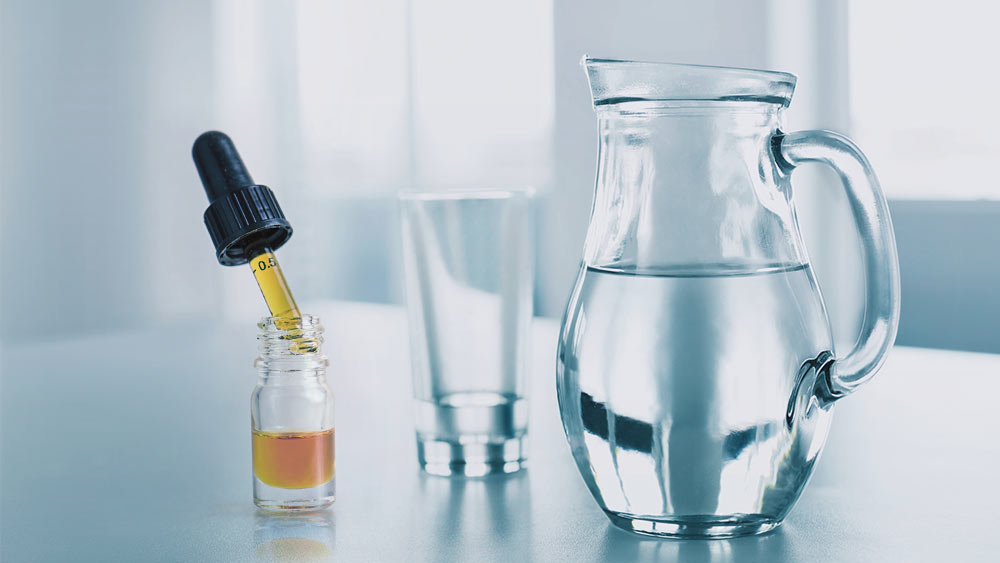
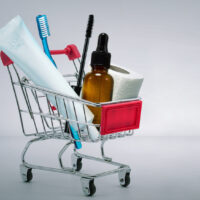

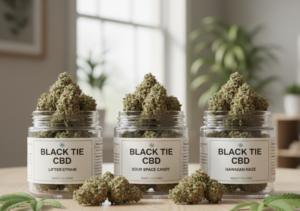
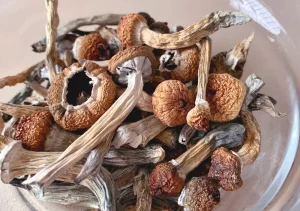
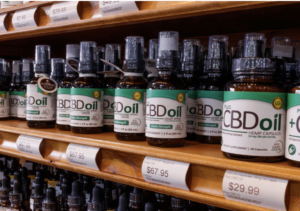
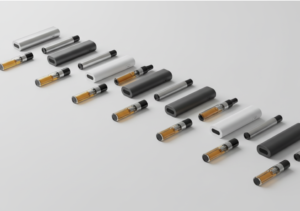
Thomas Quigley September 29, 2019 at 5:09 pm
Great article I’m sharing
Jay October 2, 2019 at 9:31 pm
I enjoyed reading this piece. You have captured everything we should know about CBD drinks.
Highway January 6, 2020 at 10:00 pm
Thanks for this information. The subject of nanotechnology used to extract the CBD in water is fascinating. Your article left me with 2 questions regarding the extraction of cannabinoids from the plant. Specifically, since cannabinoids are fat soluble (hence the need to use oils, with butter and coconut oil being preferred in extraction), why does alcohol work when making tinctures? Also, all my cannabis tinctures and edibles made with cannabutter or cannaoil from high THC strains, have all had the same adverse effects on my wife i.e. nausea, anxiety. So, my other question is: I have been using dried, cured, but non-decarboxilated buds when brewing tea (no milk or cream) in boiling water. My wife not only enjoys the flavor with no adverse effects, she says it also helps her sleep, and relieves minor aches and pains. Is my tea extracting CBD (but not THC) using water? Thanks!